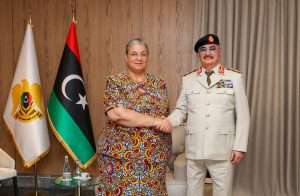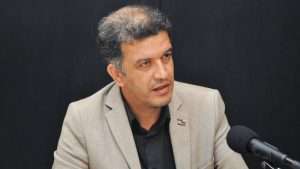Rethinking Moroccan family code as a quest for equality and justice

Morocco, a country which was once a beacon of the MENA world for women’s rights is giving the subject, once again, a shot in the arm with a whole host of updates aimed at modernizing previous laws.
Morocco has witnessed a significant and transformative moment in its legal history with King Mohammed VI’s call for consultations to amend the Moroccan family code, this historic announcement comes after over a year since the King acknowledged the pressing need for fundamental changes in the existing family code.
The Family Code, initiated during the early years of King Mohammed VI’s rule, brought several important reforms to family code, aiming to address various issues affecting Moroccan families. However, with the passage of time, it has become evident that the code has certain limitations that hinder it from fully achieving its intended goals.
Calls for Reform
Women’s and human rights organizations in Morocco have persistently advocated for reforms that correct injustices and inequalities in family code. Their demands encompass a wide range of issues, including equality in inheritance, legal guardianship of children, eliminating polygamy, criminalizing child marriages, and redefining the concept of dowry.
Reimagining the Dowry ” Assadaq”
The dowry, traditionally perceived as a financial safety net for the bride in the moroccan culture, is at the center of the debate. Advocates for change argue that the dowry perpetuates gender inequality, as it is often seen as a payment for the bride’s “services”. They call for the dowry to be reconsidered as a mutual gift between the spouses, rooted in tradition, rather than a condition for the validity of the marriage. In the pursuit of gender equality, these concepts are increasingly viewed as outdated and harmful, as they objectify and marginalize women.
Samira Muheya, president of the Federal League of Women’s Rights League, told Maghrebi that “it’s time to update terms originating from ancient jurisprudence that perpetuate a one-sided understanding of the concept, such as “‘mutaah” which means pleasure and “nikah” that means “Sex”
She suggests that it’s time to replace these terms with more comprehensive alternatives that reflect the evolving nature of marital relations.
Religious Considerations in Marriage
Another crucial demand is to eliminate religious barriers in marriage. Historically, Moroccan women have been prohibited from marrying non-Muslim men, while Muslim men have the freedom to marry non-Muslim women.
In this regard, advocates of gender equality argue that marriage should be a straightforward procedure, allowing both men and women to choose their life partners freely, regardless of religious affiliation.
This approach would eliminate societal hypocrisy and encourage interfaith unions, aligning with the changing social and economic landscape in Morocco.
Equal Inheritance
The division of inheritance is another contentious issue in the ongoing reform discussions. Advocates of reform contend that current inheritance laws perpetuate gender discrimination by favoring male heirs, and they seek equal distribution of inheritance between the sexes. The calls for change are driven by the evolving roles of women in society, challenging traditional concepts of maintenance where men are generally responsible for providing financial support to their wives.
Advocates argue that women should be considered equal contributors to family expenses or financially independent, rendering the concept of alimony obsolete in many cases.
Samira Muheya emphasizes the transformation in the status of women, noting that they now work and contribute within the family, making it unjustifiable to maintain differences in inheritance between men and women.
She added “The call is to ensure gender equality and eliminate gender-based discrimination in inheritance laws.”
The call for consultations to amend the Moroccan Family code marks a significant step toward justice and equality in Moroccan family life, addressing issues such as dowry, religious considerations in marriage, and equal inheritance is essential for bringing Morocco’s legal system in line with the evolving realities of its society.
Reforms in these areas have the potential to reshape the dynamics of Moroccan families, ensuring a fair and equal footing for all members, regardless of gender or religious affiliation. In a world striving for gender equality, Morocco is taking commendable steps towards ensuring that its family code reflect the principles of justice, equity, and inclusivity.
Want to chase the pulse of North Africa?
Subscribe to receive our FREE weekly PDF magazine















